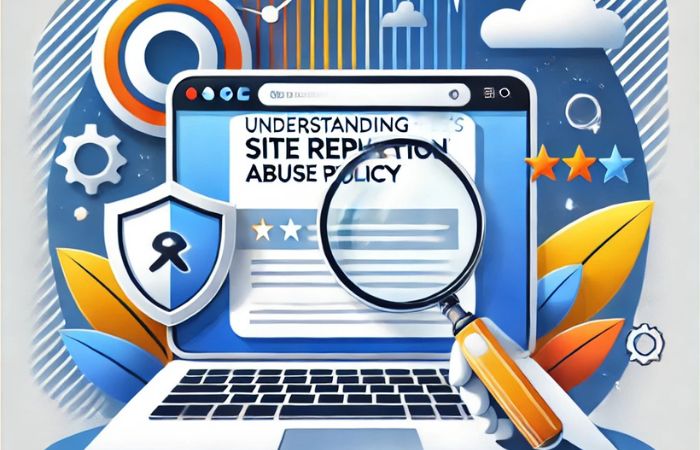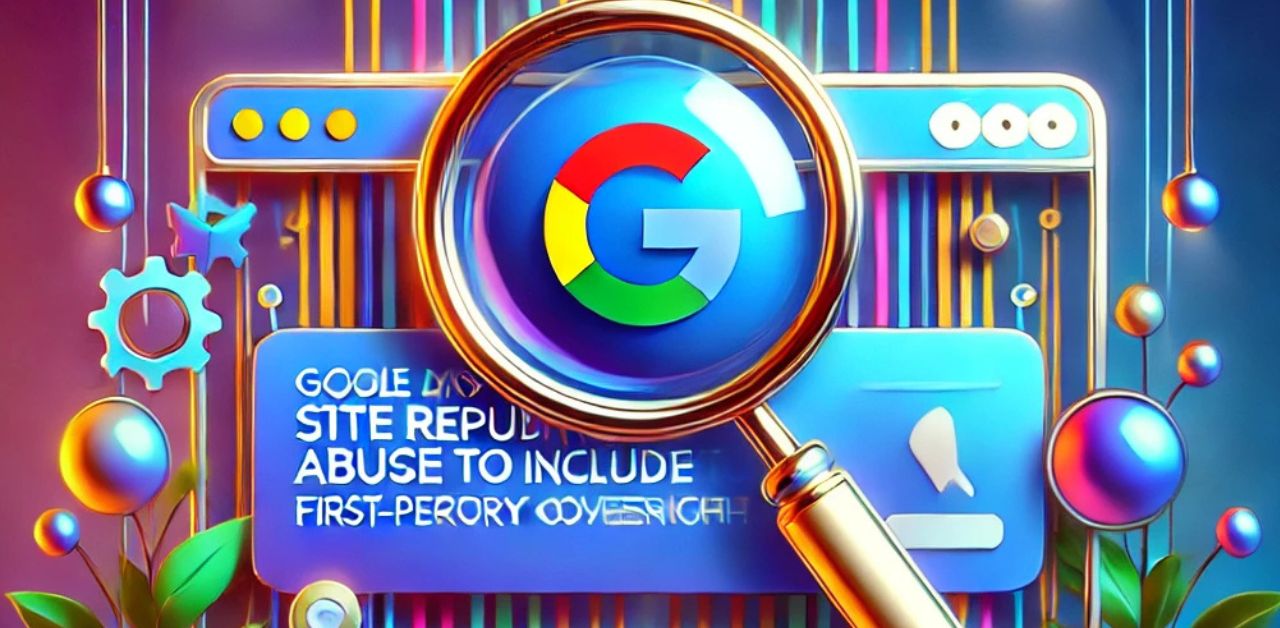Google continues to evolve its search algorithms and policies to ensure a trustworthy and user-centric web experience. Recently, Google expanded its Site Reputation Abuse Policy, now holding website owners accountable for first-party involvement in or oversight of problematic content. This update aims to create stricter guidelines for content oversight, signaling a significant shift in Google’s stance on site reputation and its impact on SEO rankings.
In this article, I’ll break down what this policy means, its implications for website owners and SEOs, and actionable steps to stay compliant in the ever-changing Google SEO updates landscape.
Understanding Google’s Site Reputation Abuse Policy

Google’s expanded Site Reputation Abuse Policy targets websites hosting or engaging in practices that compromise search quality and user trust. Specifically, this includes situations where:
- Sponsored, advertising, partner, or third-party content is hosted without close oversight.
- Pages are created with the primary intent to manipulate Search rankings.
Such pages often provide little to no value to users and operate independently of the main purpose of the host site.
The Evolution of Parasite SEO into Site Reputation Abuse
This policy update is Google’s strategic response to a spam tactic widely known as Parasite SEO. Since late 2023, SEOs have flagged this practice, where third-party content exploits the authority of reputable domains to rank manipulated or misleading pages in SERPs.
In November, Google hinted at changes targeting this tactic, with initial steps in December. These updates culminated in renaming the practice to “site reputation abuse,” reflecting Google’s broader focus on penalizing content that undermines user trust.
What Does Google Consider a Violation?
Google clarified that not all third-party hosted content is bad or spammy. Content violating the Site Reputation Abuse Policy typically includes:
- Content without Close Oversight
Pages published on a reputable site without proper moderation or approval processes. - Content Intended to Manipulate Rankings
Ads, sponsored posts, or low-quality pages designed primarily to game search algorithms.
What is Permitted?
Google allows and supports content that is transparent and user-focused, even if it is third-party hosted. Examples include:
- Native Advertising or Advertorials
These are advertising pages created for the regular audience of a publication, aligning with its tone and purpose. - Value-Driven Partner Content
Content produced collaboratively with clear oversight and valuable information for the user.
As long as the intent is to provide genuine value to users—not to manipulate search results—such content remains compliant.
Why This Update Matters
Stricter Oversight Requirements
This change places a greater burden on website owners to ensure the credibility of every piece of content. It encourages site owners to adopt stricter quality control measures, making content moderation a cornerstone of SEO strategy.
Focus on Trustworthiness
Google continues to emphasize trust signals in its algorithms. With updates like these, the search engine prioritizes websites that maintain high ethical standards in their operations, ensuring they deliver credible information to users.
Impact on SEO
This policy is directly linked to Google’s broader focus on improving search algorithm updates, including its efforts to refine how it evaluates site reputation. Websites failing to comply may witness a drop in rankings, impacting traffic and revenue streams.
Actionable Steps to Stay Compliant
1. Strengthen Content Moderation Practices
Ensure your website has a robust system to review and approve content before publishing. Tools like Google Content Safety API can help automate detecting harmful or manipulative content.
2. Regularly Audit Your Site
Perform regular audits to identify outdated, misleading, or low-quality content. These audits can also help address any gaps in compliance with Google’s SEO updates.
3. Invest in Quality Content Creation
Prioritize creating content that adheres to Google’s E-E-A-T guidelines (Expertise, Experience, Authoritativeness, Trustworthiness). Use tools like Grammarly or SEMrush for optimization.
4. Learn From Recent Google Updates
For instance, the removal of the Page Experience report from Search Console (learn more here) shows Google’s focus on other signals like user satisfaction and engagement. Stay updated to adapt your strategies effectively.
5. Build Credibility and Trust
Encourage positive user reviews, maintain a clear privacy policy, and implement HTTPS security. These factors signal to Google that your site is credible and trustworthy.
How This Update Fits Into Broader Google SEO Trends
This policy expansion is part of a larger pattern in Google search algorithm updates. Recent trends include:
- A shift from technical signals to more qualitative assessments like user intent.
- Regular refinements in SERP updates, such as changes to featured snippets or knowledge panels.
- Ongoing emphasis on rewarding authentic, user-focused websites.
If you’re just starting your SEO journey, my detailed guide on how to start a blog and make money provides a comprehensive roadmap to establish a strong foundation for your online presence.
FAQs on Google’s Site Reputation Abuse Policy
1. What is the purpose of Google’s Site Reputation Abuse Policy?
Google’s policy ensures that websites engaging in manipulative or harmful practices are penalized. It helps maintain a trustworthy search environment.
2. How does this update affect small website owners?
Small website owners need to adopt stricter content moderation processes to avoid penalties and maintain their rankings. This may involve investing in better tools or services.
3. Can third-party content harm my site’s reputation?
Yes, if third-party content on your website violates Google’s policies, it can impact your site’s rankings. Proper moderation is essential.
4. How do I recover from a reputation penalty?
Focus on removing harmful content, improving your content quality, and requesting a review through Google Search Console.
External Resources to Deepen Your Knowledge
Conclusion
Google’s expanded Site Reputation Abuse Policy underscores the importance of ethical and well-managed content practices. For website owners, this update isn’t just a warning but an opportunity to align with Google’s commitment to user trust and safety.
Staying updated with these changes, adopting robust content strategies, and learning from past updates will help you thrive amidst ongoing SERP updates and Google SEO updates.
Ready to take your site to the next level? Start by strengthening your content strategy and exploring new growth opportunities with my guide on how to start a blog and make money.







